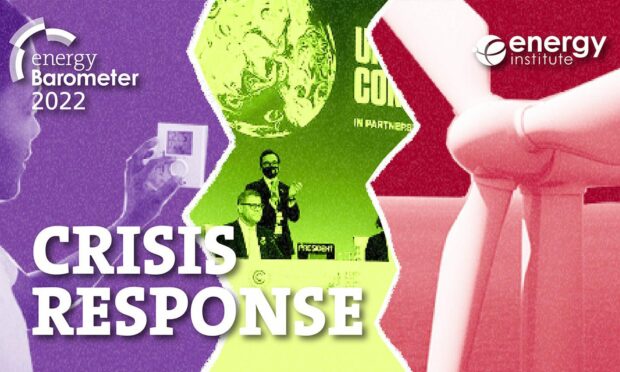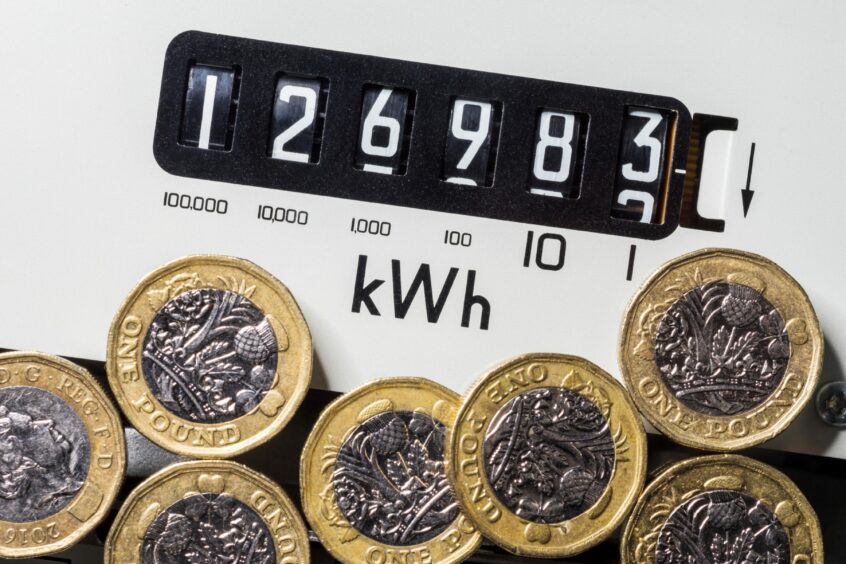Energy professionals across the north of Scotland have backed calls for the UK Government to treat spiralling household fuel costs as a national emergency.
Households across Britain are grappling with massive increases in their energy bills, not to mention huge increases in petrol prices and the cost of their essential groceries.
Inflation rocketed to 9.1% in May, its highest level in 40 years.
And now the Energy Institute (EI), the chartered professional membership body for people who work across the energy industry globally, has called for stronger government action.
It has made four key recommendations:
- Help now for the most vulnerable, with subsidies for the lowest-income homes in advance of winter.
- A nationwide retrofit programme to get all homes to energy performance rating C or above, with subsidies provided where necessary.
- Tailored advice and information through government-backed behaviour change campaigns to help householders manage their energy usage.
- Skills investment, with green jobs in the homes and buildings sector, made a priority.
Triple whammy
EI’s latest annual Energy Barometer survey of its membership ranked energy efficiency as the priority response to the crisis.
Respondents highlighted a triple energy crisis – highlighting spiralling household bills as their greatest current concern, followed by climate change and security of supply.
More than two-thirds (70%) of those questioned said energy efficiency policy was not delivering and nine in 10 said fuel poverty policy was failing. Confidence in the UK either achieving or getting anywhere near net-zero by 2050 has fallen to just 30%.
EI’s global network includes a large branch covering Aberdeen and the Highlands & Islands.
It works in partnership with schools, colleges, universities, industry and the general public across the north and north-east to raise awareness, and provide career information and networking opportunities to assist those working in and studying energy.
Aberdeen-based branch associate members include Michael Howie, strategy and business development manager, Global E&C, who said: “There’s a major crisis coming to a head in energy just now. Not only are we currently grappling with the climate emergency, but we now see extortionate energy bills as a symptom of the cost of living crisis.
“While government strategies acknowledge many of the necessary steps, the Energy Barometer meter clearly states we need to see urgent action on home energy efficiency.
“This is especially the case in Scotland, where our winters are hard and fuel poverty affects so many.”
Charlotte Hartley, public affairs manager at renewables firm Storegga, is co-chairwoman of the EI Young Professionals Network for Aberdeen, and the Highlands & Islands.
Ms Hartley said: “We all need to think carefully about how we can contribute to addressing the energy crisis and improving energy efficiency is a key ingredient.
“To achieve this we need to support consumers in making their homes more efficient and for industry, the right policies need to be in place to move it in the right direction.
“This is not solely about reducing bills or emissions, it’s also about increasing wealth and creating opportunities for new highly-skilled jobs and game-changing technology.”
EI’s Energy Barometer 2022: Crisis Response survey offers a “mixed verdict” on the UK’s response to date.
Launching the findings, the professional body said: “The energy crisis is hitting hard and our professional members working across the sector set out… how they think the UK should be responding.
“There is support for the ambition around renewable energy deployment, as outlined by ministers in the British Energy Security Strategy.
“But the survey finds common cause with business groups, consumer campaigners and environmentalists in calling for efforts on the demand side to be put on an emergency footing.”
EI president Juliet Davenport said: “Spiralling gas prices have fuelled a cost-of-living crisis, and I agree with the Energy Barometer’s central finding that home energy efficiency has to be treated as a national emergency.
“Alongside this, with the plummeting costs of solar and wind, an energy system built around renewables offers Britain’s consumers, its economy and the planet the best chance of a resilient, clean, affordable energy future.”
EI chief executive Nick Wayth said: “The issues raised in this year’s Barometer highlight the real hardship and challenges faced by society from the triple energy crisis.
“We must seize the opportunity to accelerate our efforts to deliver the energy transition: driving efficiency, expanding low-carbon supplies and decarbonising how we use natural gas.”





Conversation